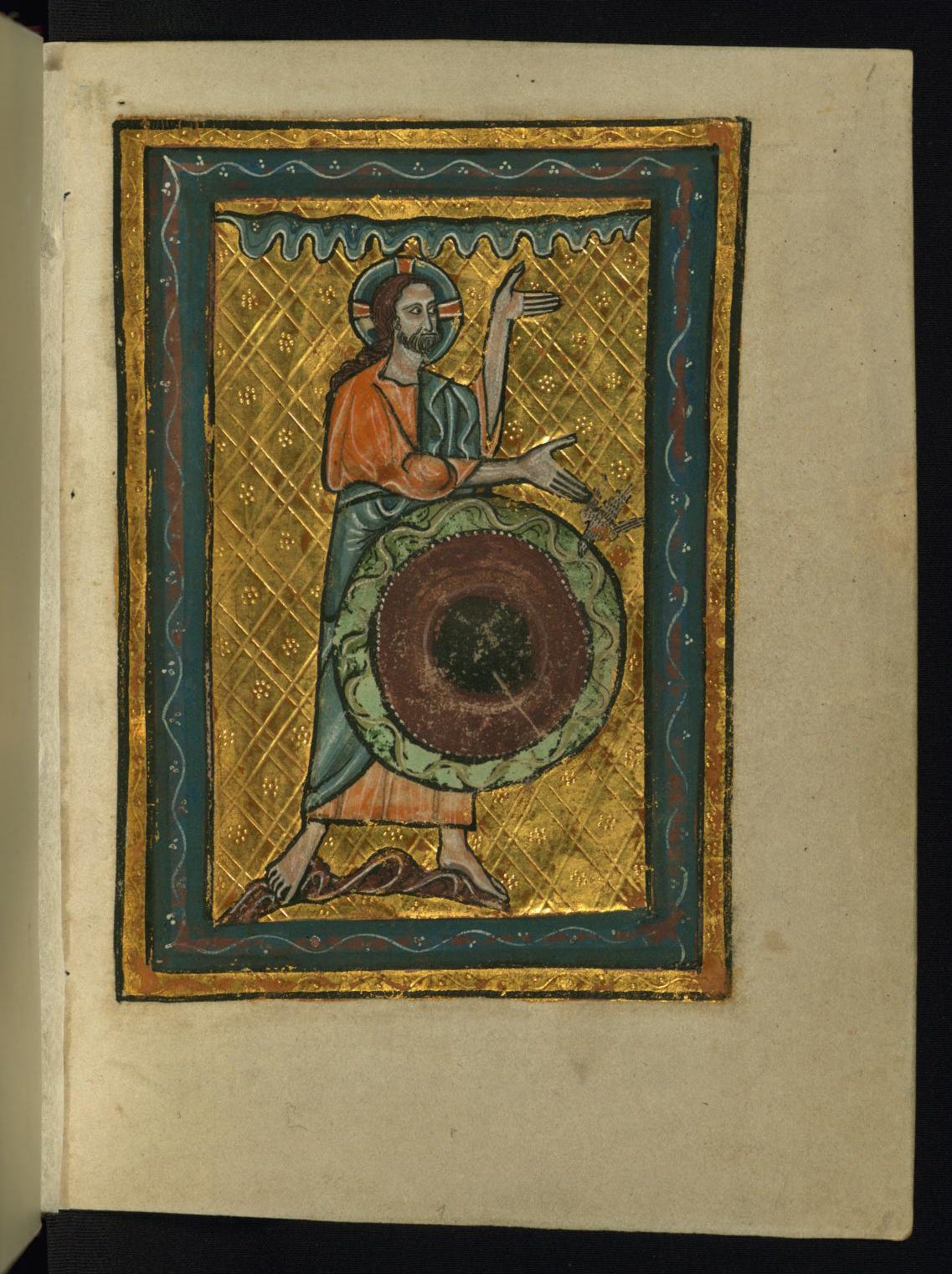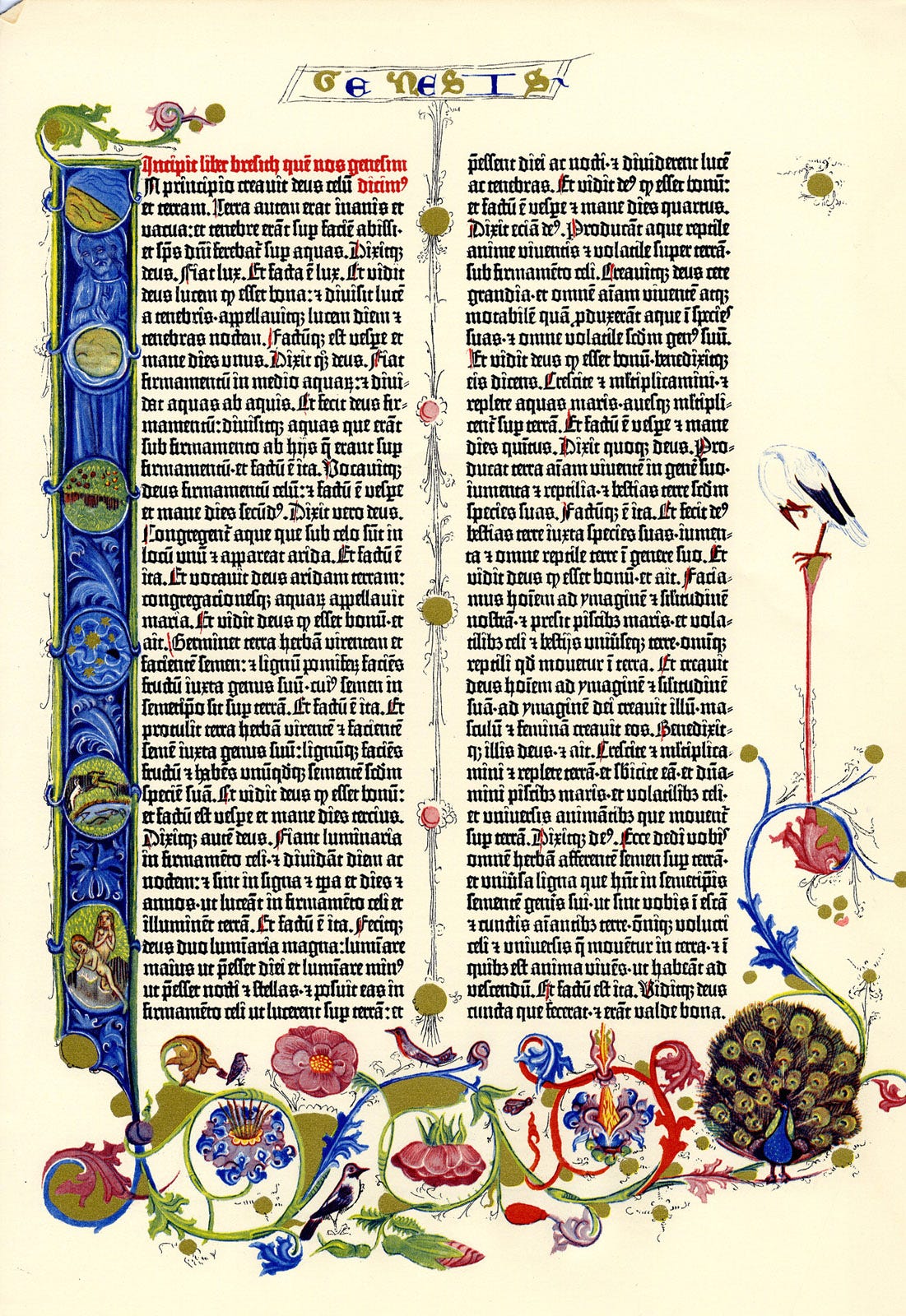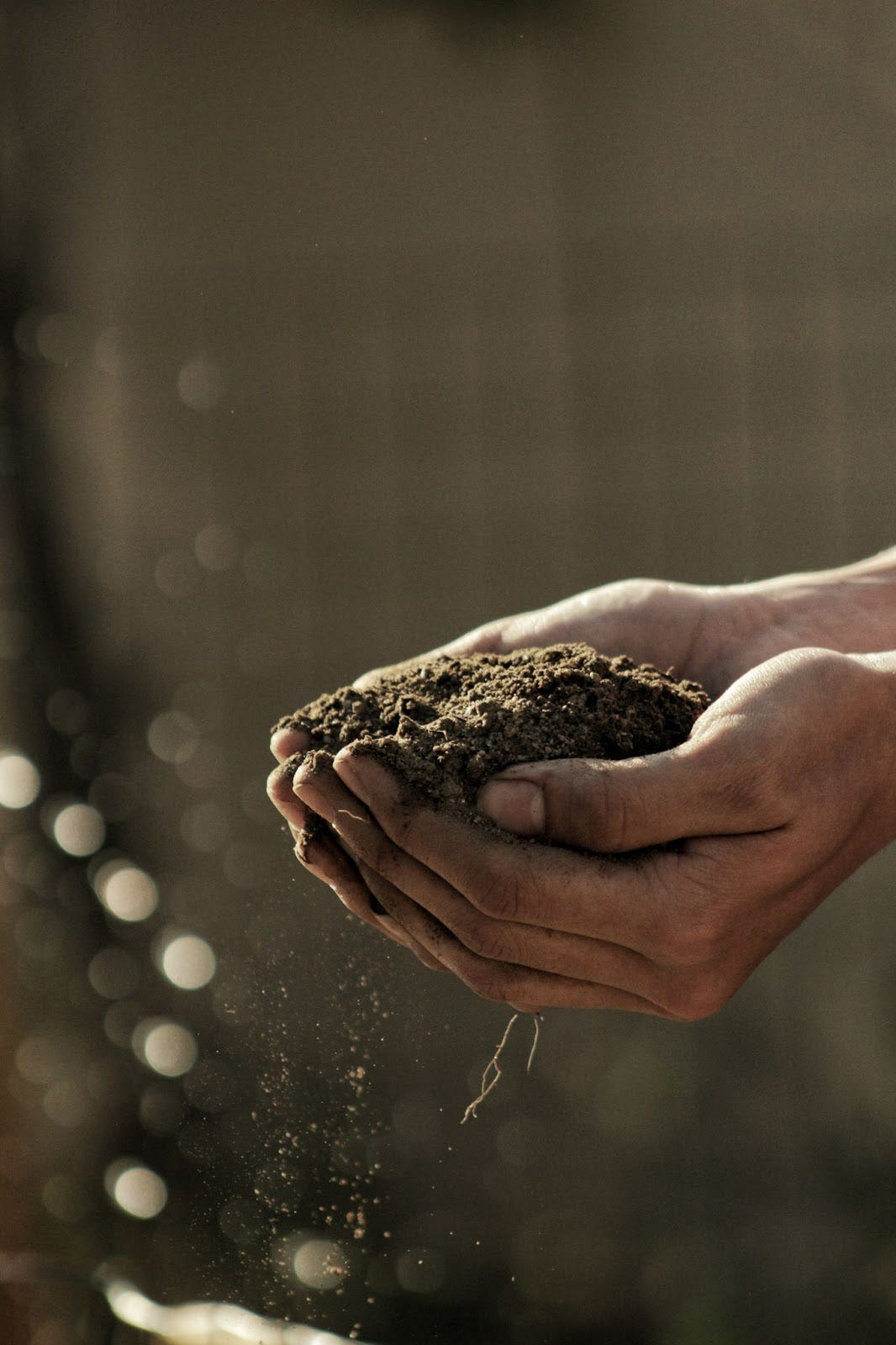Dear Reader,
I’ve been married for over seven years, and yet somehow there are still lessons God is teaching me: how to communicate, how to navigate conflict, and of course the never-ending question of whose job it is to take out the trash. I often feel overwhelmed by the amount of resources that exist on marriage, not to mention the task of discerning sometimes contradicting advice. These books have a lot to offer, but the best place to start is Genesis, where we read about the first ever married couple.
Creation
The first verses of the Bible tell us that the earth was formless and void, using the Hebrew word tohu wa-bohu, or “wasteland.” Then God made, in this desolate nothingness, a garden. Whatever you believe about the literal or figurative nature of the first chapters of Genesis, God communicates the story to us this way for a reason. He was perfectly capable of speaking the world into being all in an instant, but he chose to use a six day period.
After each day he called his work good, but on the sixth day, after he created mankind, he called his work very good. In fact, God makes it clear that humans are innately different than the rest of the animals. We are created in God's image: an honorable role with a weighty task. Then, on the seventh day God rested.
But what does any of this have to do with marriage? In the first chapters of the Bible, God sets out a model for us: for marriage and for living and laboring well together.

Labor & Rest
God gives Adam “dominion” over all created things, a word that means stewardship and caretaking. He also names the animals, which is a creative act. Like Adam, we are to steward the world, not only nature but also the things in our lives: our homes, our jobs, spouses, children, and whatever resources we have.
God also set out a model for us in that he rested on the seventh day. This is not an arbitrary, legalistic command to do nothing whatsoever, nor is it an excuse for laziness. In Matthew. Jesus bids us to come to him, all who are in need of rest, “…for my yoke is easy and my burden is light” (Matt 11:28-30). Jesus' definition of rest involves terms typically associated with work.
When King David and his men were on the run from Saul, they broke the Jewish law by “harvesting” a few heads of grain for a snack because they needed sustenance. Jesus himself broke the law by healing on the sabbath, which he explained was glorifying to God.
Sometimes rest actually means working on a hobby or even a house project—a so-called “labor of love.” Sometimes laboring well looks like being easy on yourself so you don’t burn out. Labor is creative; it is nurturing; and is followed by good rest, which is nourishing and healing to ourselves and others. Above all, our labor and rest should be glorifying to God.
A Covenant
But no one in all creation was fit for Adam. We are not meant to do this work alone. When God created the woman, he put Adam into a deep sleep, the same term used for when God made a covenant with Abraham to make a great nation. The Bible says that God put Abraham into a deep sleep. So here we have a different kind of covenant being made: the marriage covenant. How beautiful that the first thing that Adam says when he sees Eve is a poem: “this at last his bones of my bones and flesh of my flesh.”
Death & Resurrection
Just like Adam and Eve, a husband and wife were created for one another; she is exactly the right person for him and he for her. When Adam went into that deep sleep, it was symbolic of death, a “death sleep”. In the beginning of the world, there was a little death and a resurrection to greater glory.
We, too, are called to die to ourselves, especially in marriage. We must listen, admit when we are wrong, and give grace upon grace. To quote a friend, “Marriage is the hardest thing I’ve ever done, but it is also the best.” When we sacrifice it always ends in a greater glory. We become better, sanctified versions of ourselves.
A Calling
In Eden, before the first sin and the fall, Adam and Eve would walk with God in the garden in the cool of the day, a picture of the kind of intimacy with God that we anticipate when the kingdom of God arrives. We don’t have Eden anymore, but we do, in a sense, have a garden. That is our world, which is infused with beauty, goodness, and truth—God revealing himself to us. However imperfect, it is a foreshadowing of the coming kingdom.
As Christians, our calling is to usher in this kingdom, to seek God’s glory in all that we do, whether that is laboring or resting. And if you are a married person, then you have a special avenue where you can cultivate the kingdom like a garden.
Join the conversation!
Comment below. How do these ideas challenge your concepts of labor and rest? What are some other verses in the Bible about labor and rest that you’ve found insightful and how did they help you?





